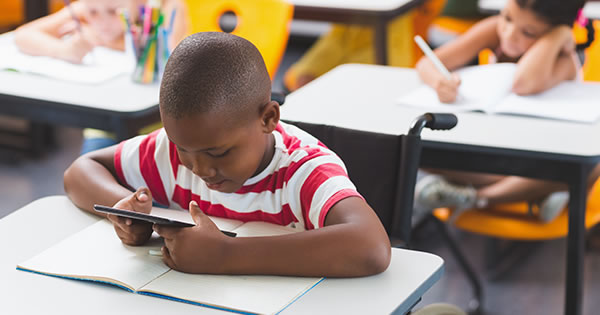Every child has the right to education despite disabilities. However, often students with disabilities are excluded from schools and are compelled to take admission in ‘special’ schools. This can make them suffer from an identity crisis, and soon they weigh their existence only in terms of their disabilities. Inclusive education, on the other hand, allows building an atmosphere that would help such students thrive side by side with others.
The importance of inclusive education is recently being viewed by a large group of people, including educationists, psychologists, and social scientists. According to a United Nations report, 75% of children who suffer from some kind of disability do not attend schools or any institution throughout their life.
Therefore, it is crucial to come up with a better education system that can accommodate such students and ensure their growth in all spheres. Suppose Inclusive education has to be implemented in Indian schools. In that case, certain principles must be followed to make the environment suitable for all kinds of kids. The importance of inclusive education is immense and to execute it properly, following these principles is necessary. Let us look at these principles quickly.
Principle of Togetherness
The idea behind inclusive learning is to provide an environment that will promote the overall growth of all learners. It should not give one advantage over the other in any way. Irrespective of caste, colour, disability and gender, children should come together and share a space that will work well for all of them.
Principle of Equality
Although the Indian constitution clearly states the right to education for all children, many miss out on that due to certain reasons. This is where the importance of inclusive education arises. An educational institution must ensure that they do not prejudice against caste, creed, colour etc. and preach the same to students.
Principle of Change
Inclusive education aims at changing or modifying the education system in a way that will fit all students instead of changing students to fit the system. An institution must try to change its syllabus, form of reading and teaching to cater equally to all students.
Considering Individual Differences
The importance of inclusive education lies in the acceptance of differences and finding a way to overcome them. Ideal or natural equality does not exist, but with the right infrastructure and system, one can overcome the differences and perform as well as anybody. Likewise, every child is unique and may have different concerns. The learning environment must strive to bring out the best in each student.
Rejection of Special Classrooms
Special classrooms were once considered beneficial for children with disabilities because they undertake an approach that will work better with them. But this approach only marks them as distinct from the regular crowd. The idea is not to have a special classroom but make the system special that will suit the needs of kids with disabilities and those without it. The aim and importance of inclusive education get defeated with special classrooms.
Principle of Participation
Inclusive education aims to encourage all kinds of students to participate in a common educational setting. Participation is an important principle that pushes kids to forget their disabilities and emerge as equals. It makes the teaching-learning process friendly for all.
The only way to do away with prejudices is to educate children and break down their biases while still informative years. Learning in inclusive educational settings makes better human beings and gives everyone the chance to learn and experience life equally. It ensures that a child gets the right kind of right to education.

